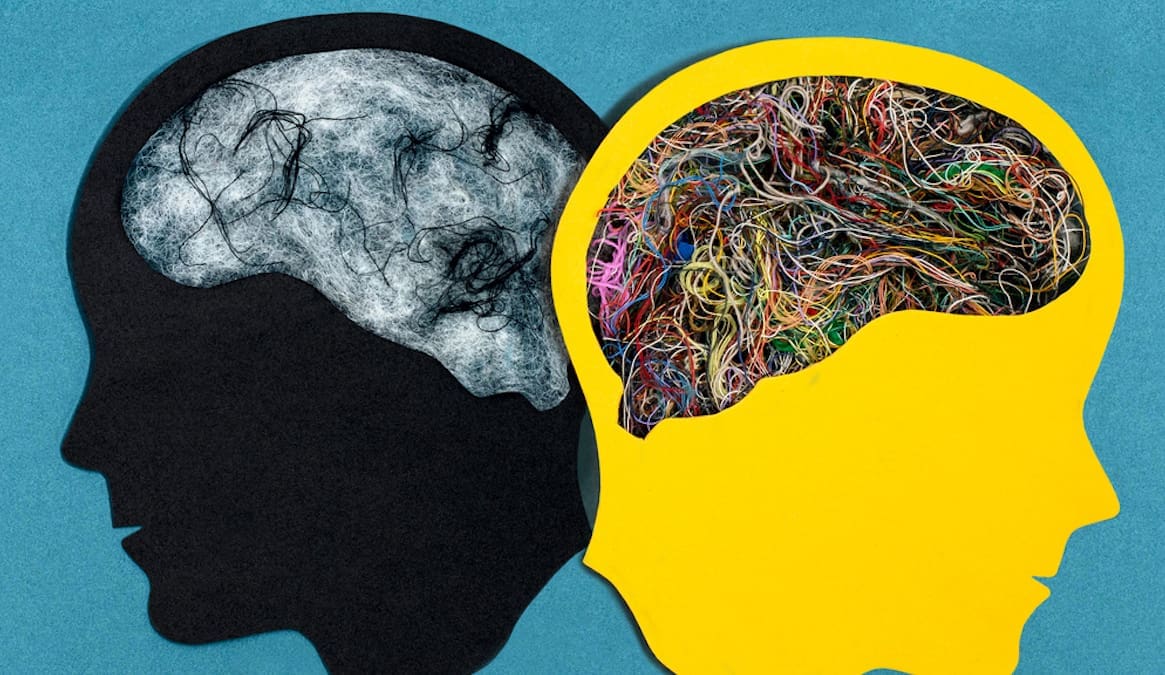In the ongoing effort to promote understanding and effective treatment for mental health disorders, bipolar depression remains both misunderstood and deprived of a widely applied, effective treatment method. Bipolar Disorder (formerly called manic depression) is a condition characterized by extreme mood swings from high (manic) to low (depressed). Bipolar depression refers to the periods of depression in bipolar disorder. Common symptoms are similar to regular (unipolar) depression, including pervasive sadness, inability to experience pleasure, low energy, sleep problems, appetite changes, poor concentration, and thoughts of death or suicide. Despite many similarities, certain symptoms are more common in bipolar depression than in regular (unipolar) depression. For example, bipolar depression is more likely to involve irritability, guilt, unpredictable mood swings, and feelings of restlessness. In addition, you’re more likely to develop psychotic depression—a condition in which you lose contact with reality—and to experience major problems in work and social functioning.
People with Bipolar Disorder are more commonly distressed and debilitated by their depressive episodes than their manic episodes. In addition, because of the risk of suicide, bipolar depression can be potentially more dangerous than mania.
Unfortunately, traditional psychopharmacological treatment methods are often ineffective in relieving the symptoms of bipolar depression. Worse still, antidepressants often exacerbate the symptoms of Bipolar Disorder and can trigger manic or hypomanic episodes. At Mid City TMS, we are dedicated to furthering the understanding of this complex form of depression, as well as offering an effective treatment method through our NY TMS practice for bipolar depression.
Antidepressants Can Worsen Bipolar Depression
Given the controversial nature of using antidepressants to treat bipolar depression, the International Society for Bipolar Disorders (ISBD) created a task force to come to a consensus on antidepressants’ safety and effectiveness for treating patients with Bipolar Disorder. To accomplish this goal, the ISBD’s team of medical experts was called upon to review all relevant medical literature.
While the task force agreed that certain patients with bipolar depression may experience relief from medication, they were unable to achieve a consensus that antidepressants are an effective and safe means of treating the majority of patients with bipolar depression. Additionally, the task force observed many bipolar depressed patients’ mood shift to hypomania and mania after taking antidepressants, thus confirming the need for special precautions when treating this group. The severity of mood elevation due to antidepressants was worse in patients with bipolar I than in those with bipolar II, causing the task force to conclude that patients with bipolar I should only be prescribed antidepressants only when patients are also being using mood-stabilizing medications.
NY TMS: An Effective Alternative
Unlike antidepressants, TMS therapy is considered a safe and effective way of treating bipolar depression. A comprehensive survey of the literature surrounding TMS’s effectiveness in treating bipolar depression was conducted in 2016 by Dr. McGirr and his colleagues, who compared bipolar depressed patients’ responses to TMS treatment with their responses to a sham TMS treatment. They discovered that patients who received TMS treatment achieved notably higher response rates than those who received the sham treatment. Furthermore, they found that TMS treatment for bipolar depression doesn’t exasperate patients’ symptoms like antidepressants can and the risk of inducing mania is very low. At the conclusion of their meta-analysis, Dr. McGirr and his colleagues found TMS to be both an effective and safe means of treating patients with bipolar depression.
To further the body of knowledge about TMS’ effectiveness following its FDA approval, a group of researchers at The University of Pennsylvania conducted a TMS clinical study testing TMS’s ability to treat patient groups that are often unresponsive or unfit for psychopharmacological treatment methods such as those with bipolar depression. At the conclusion of their analysis, they were pleased to find that TMS was an effective treatment method for those with bipolar depression.
In 2016, Aaronson and Daddario conducted the largest study specifically designed to assess bipolar depressed patients’ responses to TMS treatment. This trial was groundbreaking because it did not treat bipolar depression as a subgroup, but rather it provided the specialized attention and tailored treatment this complex and misunderstood condition deserves. Aaronson and Daddario discovered that bipolar depressed patients received even greater relief from TMS treatment than their unipolar counterparts.
At Mid City TMS, bipolar depressed patients in New York City finally have an effective, safe treatment method.
Contact Mid City TMS for NY TMS Treatment
Since TMS received its FDA approval as an indicated depression treatment option in 2008, our team at Mid City TMS has had the honor of providing relief to hundreds of patients who suffer from treatment-resistant and complex depression disorders in the greater New York metropolitan area. Mental illness is the primary cause of disability in America.
While the expanding body of knowledge and candor of celebrities has helped to reduce the stigma around mental illness, the traditional treatment methods are often ineffective. It is time to address this national crisis with more effective tools like TMS. Even complex conditions such as bipolar depression are treatable with TMS therapy.
If you are suffering from bipolar depression, TMS therapy is available at Mid City TMS. As one of the first TMS providers in the New York Area, our dedicated team members are experts at providing personalized treatment plans. Take control of your disability, and contact Mid City TMS today.



